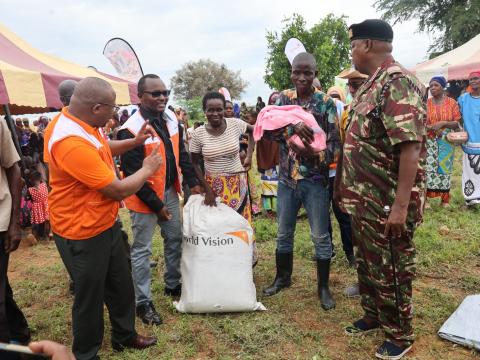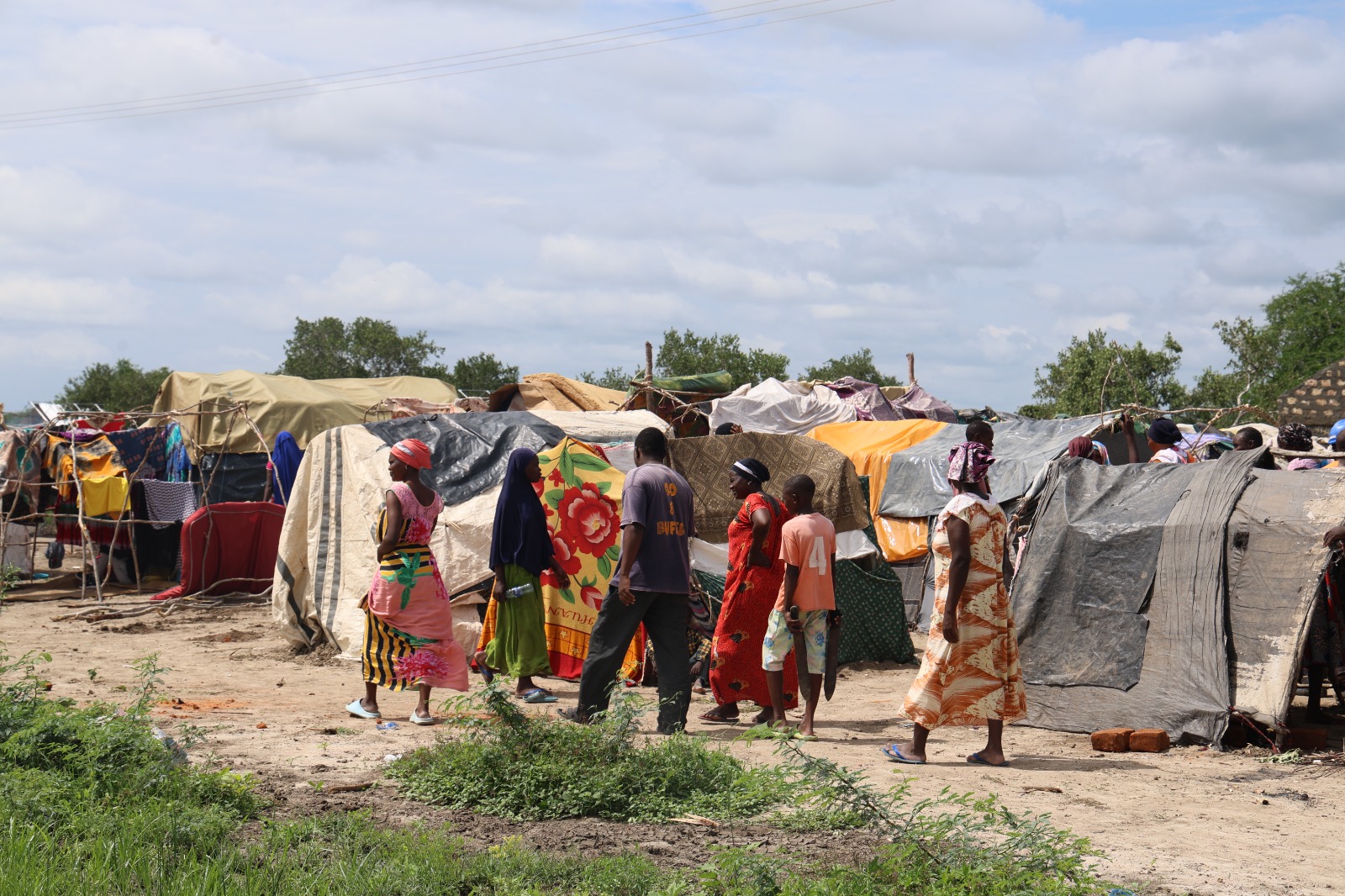El Niño-Induced Floods Wreak Havoc in Kenya, leaving thousands in need of Humanitarian Assistance

By Felix Pilipili, World Vision Communications Specialist, Kenya
Deserted houses paint a bleak picture in various parts of the country, as relentless heavy rains wreak havoc in Kenya, a consequence of climate change. Thousands of homes are now submerged in floodwaters, leading to substantial losses for thousands of families. Homes, hospitals, and schools have been washed away and left marooned. Additionally, vast stretches of farmland are now submerged, causing crops to be flooded.
Since the floods struck in October 2023, at least 38 out of Kenya's 47 counties have experienced above-average rainfall. Government of Kenya’s Ministry of Interior reports indicate floods have resulted to the death of over 154 people and the displacement of more than half a million individuals.

The floods have also cut off numerous roads, halting the transportation of people and essential goods and worsening the already dire humanitarian situation in the country, especially in the arid and semi-arid lands (ASALs). Tana River and Lamu Counties in Kenya have been worst impacted by the ongoing catastrophic rains.
"Many roads are impassable. Getting food and essential commodities has become challenging, leading to scarcity and an increase in the cost of living," stated a community member in Tana Delta. "For example, the price of sugar has surged from 150 to 250 shillings per kilogram in some areas since the onset of the rains."
Ruth Amon, a widowed mother of two living in Kongolola, Tana Delta, ponders deeply. Recently, her family was compelled to leave their home as relentless rains submerged it. Ruth and her two children have now embarked on a new chapter as internally displaced persons in a camp. She fears that her life and that of her children won't return to normal anytime soon. "I never envisioned my children living this way. Life in the camp, especially for children, is tough and challenging." However, she remains optimistic that things will improve once the water recedes, as she's concerned about the possibility of starvation in the camp.

Isabel, her 15-year-old child, is overwhelmed with emotions as she recounts how the floods destroyed their only home. She gazes into a bleak future, with her dream of studying hard to join the military dwindling. She fears the ongoing rains may disrupt their learning when schools reopen in early January 2024. "My books, school uniform, and school bag are all gone. Initially, I thought we were the only ones affected, but I've discovered many other school-going children in the camp facing the same challenges," she explained.
For thousands of households in Tana River County, the journey has been overwhelming, shifting from drought to flood. Through the USAID-funded Kenya Integrated Emergency Response Project, World Vision has been supporting over 4,000 households affected by drought in Tana River County since July 2022.
With the current flooding events, a community member shares, "We lost everything to the prolonged droughts and were elated when the rains finally arrived, anticipating a bountiful harvest. Today, my heart aches; I've lost my home, and my children are asking when we can return. I have no response. Our house was submerged, and we lost our livestock."

The new life in the displacement camp has altered the lifestyles and fortunes of many. Even though displacement camps are considered safe grounds, poor sanitation conditions and the lack of clean water in camps potentially spreading diseases are among the major concerns. Government reports indicate that there have been 391 reported cases of diarrhoea, a cholera outbreak in certain parts of the country, and an increase in malaria affecting children.
Eunice Oduor cradles her three-day-old infant. Her family was displaced by the floods barely days after she had given birth. Forced to flee their submerged home, constructed from mud and corrugated metal sheets, they sought refuge on the nearest dry land with her children. She narrates, “It is very cold here in the camp, and this situation is exposing our children to waterborne diseases such as cholera and mosquitoes leading to the spread of malaria.”
Thousands of children and families live in constant fear of violations of their rights, and insecurity in the displacement camps. Many families are also food insecure, and require urgent humanitarian aid. Eunice confides, “Eating here has become a luxury,” she said. “We don’t know when we will have the next meal.”
Moving around the displacement camps, one can hear the cries of hungry children while their parents tirelessly work to set up makeshift shelters and temporary toilets. "We must exert ourselves to ensure the shelters are in place before the heavy rains begin in the afternoon."

World Vision Kenya has unveiled an Emergency Response Plan to aid 441,494 individuals (74,582 households), including 259,550 children, which requires a budget of USD 15 million. Collaborating with County and National Governments and other partners, World Vision aims to bolster immediate life-saving and humanitarian efforts. This includes sensitising communities to relocate to safe sites during the onset of heavy rains.
Gershon Mwakazi, Director of Disaster Management at World Vision Kenya, emphasises the crucial role that both state and non-state agencies play in safeguarding children from violence during this crisis. "Floods have displaced children and their families, pushing them into camps. These children are already stressed by the unfamiliar environment. There's a risk of opportunistic individuals exploiting the flood situation to harm them. It's our collective responsibility to protect children from violence and other forms of abuse."
As part of the response, World Vision in collaboration with the County Government of Tana River, the National Government, National Drought Management Authority, and community leaders recently distributed Non-Food Items, dignity kits, and mosquito nets to over 500 vulnerable households in Tana Delta severely impacted by ongoing floods.
Additionally, more than 500 households in Kongolola, Bula Tarassa, Telkom, B8, and Konani camps in Tana Delta received cash transfers to address challenges faced by affected families, ensuring they have sufficient food and can meet basic needs for their children.